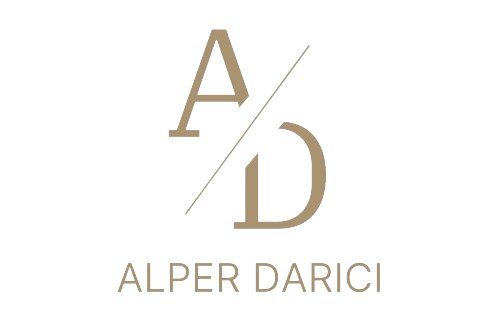Best Collaborative Law Lawyers in Belgium
Share your needs with us, get contacted by law firms.
Free. Takes 2 min.
Free Guide to Hiring a Family Lawyer
Or refine your search by selecting a city:
List of the best lawyers in Belgium
About Collaborative Law in Belgium
Collaborative Law in Belgium is a method of resolving legal disputes outside of the courtroom through a collaborative approach. The parties, with the help of their lawyers, work together to find amicable solutions that meet the needs of all parties involved. This process is often preferred as it promotes communication, cooperation, and minimizes the adversarial nature of traditional litigation.
Why You May Need a Lawyer
You may require a lawyer in Collaborative Law in Belgium if you are going through a divorce, child custody, or other family law disputes. A lawyer can help guide you through the process, advocate for your interests, and ensure that your rights are protected.
Local Laws Overview
In Belgium, Collaborative Law is governed by the Collaborative Law Act of 2006. This act sets out the procedures and requirements for engaging in collaborative law processes. It is important to familiarize yourself with this act and any other relevant local laws before proceeding with a collaborative law case.
Frequently Asked Questions
What is the role of a lawyer in Collaborative Law?
A lawyer in Collaborative Law in Belgium acts as a legal advisor, advocate, and facilitator. They help guide their clients through the collaborative process, ensure that their rights are protected, and advocate for their interests.
How long does a Collaborative Law case typically take in Belgium?
The timeline for a Collaborative Law case in Belgium can vary depending on the complexity of the case and the willingness of the parties to cooperate. On average, a Collaborative Law case can take anywhere from a few months to a year to reach a resolution.
Can Collaborative Law be used for all types of legal disputes in Belgium?
Collaborative Law in Belgium is primarily used for family law disputes, such as divorce, child custody, and separation agreements. However, it can also be used for other civil disputes, such as inheritance and property issues.
Is Collaborative Law legally binding in Belgium?
Yes, agreements reached through Collaborative Law in Belgium are legally binding. Once the parties have agreed on a resolution, it can be formalized into a legally enforceable document.
What are the benefits of using Collaborative Law in Belgium?
Some of the benefits of using Collaborative Law in Belgium include cost-effectiveness, privacy, flexibility, and the ability to maintain a cooperative relationship with the other party.
Do both parties need to have a lawyer in Collaborative Law in Belgium?
Yes, it is recommended that both parties have their own lawyer in Collaborative Law in Belgium. This helps ensure that each party's interests are represented and protected throughout the process.
Can I switch to traditional litigation if Collaborative Law doesn't work for me in Belgium?
Yes, if Collaborative Law in Belgium does not lead to a resolution, you can choose to pursue traditional litigation through the court system. However, any information shared during the collaborative process cannot be used in court.
How much does it cost to hire a lawyer for Collaborative Law in Belgium?
The cost of hiring a lawyer for Collaborative Law in Belgium can vary depending on the complexity of the case, the lawyer's experience, and the amount of time involved. It is important to discuss fees and payment structures with your lawyer before engaging their services.
Are there any specific requirements for engaging in Collaborative Law in Belgium?
Yes, in Belgium, both parties must agree to participate in the Collaborative Law process voluntarily. They must also sign a participation agreement outlining the rules and procedures for the collaborative process.
Can Collaborative Law help me avoid going to court in Belgium?
Yes, one of the main goals of Collaborative Law in Belgium is to help parties reach a resolution without going to court. By working together collaboratively, parties can often avoid the time, expense, and stress of litigation.
Additional Resources
If you are in need of legal advice or assistance in Collaborative Law in Belgium, you may consider reaching out to the Belgian Association for Collaborative Law or consulting with a local law firm specializing in Collaborative Law.
Next Steps
If you are considering engaging in Collaborative Law in Belgium, the first step is to consult with a lawyer who specializes in this area. They can provide you with an overview of the process, answer any questions you may have, and help you determine if Collaborative Law is the right approach for your situation.
Lawzana helps you find the best lawyers and law firms in Belgium through a curated and pre-screened list of qualified legal professionals. Our platform offers rankings and detailed profiles of attorneys and law firms, allowing you to compare based on practice areas, including Collaborative Law, experience, and client feedback.
Each profile includes a description of the firm's areas of practice, client reviews, team members and partners, year of establishment, spoken languages, office locations, contact information, social media presence, and any published articles or resources. Most firms on our platform speak English and are experienced in both local and international legal matters.
Get a quote from top-rated law firms in Belgium — quickly, securely, and without unnecessary hassle.
Disclaimer:
The information provided on this page is for general informational purposes only and does not constitute legal advice. While we strive to ensure the accuracy and relevance of the content, legal information may change over time, and interpretations of the law can vary. You should always consult with a qualified legal professional for advice specific to your situation.
We disclaim all liability for actions taken or not taken based on the content of this page. If you believe any information is incorrect or outdated, please contact us, and we will review and update it where appropriate.
Browse collaborative law law firms by city in Belgium
Refine your search by selecting a city.












